Disclosure: Meeple Mountain received a free copy of this product in exchange for an honest, unbiased review. This review is not intended to be an endorsement.
Allow me to begin with two confessions of supreme relevance that beg an important question.
First, I am not typically a solo gamer. I do not own a single solo game, and I have rarely, if ever, tangled with the solo variants of the games in my collection. In our house, that role is typically played by my daughter. My favorite aspect of any game is the other people at the table. I am not an all-out social butterfly, but I thrive in the intentional company of a few. This just happens to be the real estate which board games occupy in my heart and life. If ever you see me alone, you’re more likely to see me reading or writing.
Second, I have never played a game from Button Shy before ROVE. Sprawlopolis, Circle the Wagons, Tussie Mussie, and numerous others, from what I hear, deserve all the praise they receive. Without revealing too much, I may or may not be very, very excited for the arrival of a Kickstarted expansion of a certain skull-ish original slated to arrive in early 2022. Even still, I am still dipping my toes into the 18-card waters for the first time.
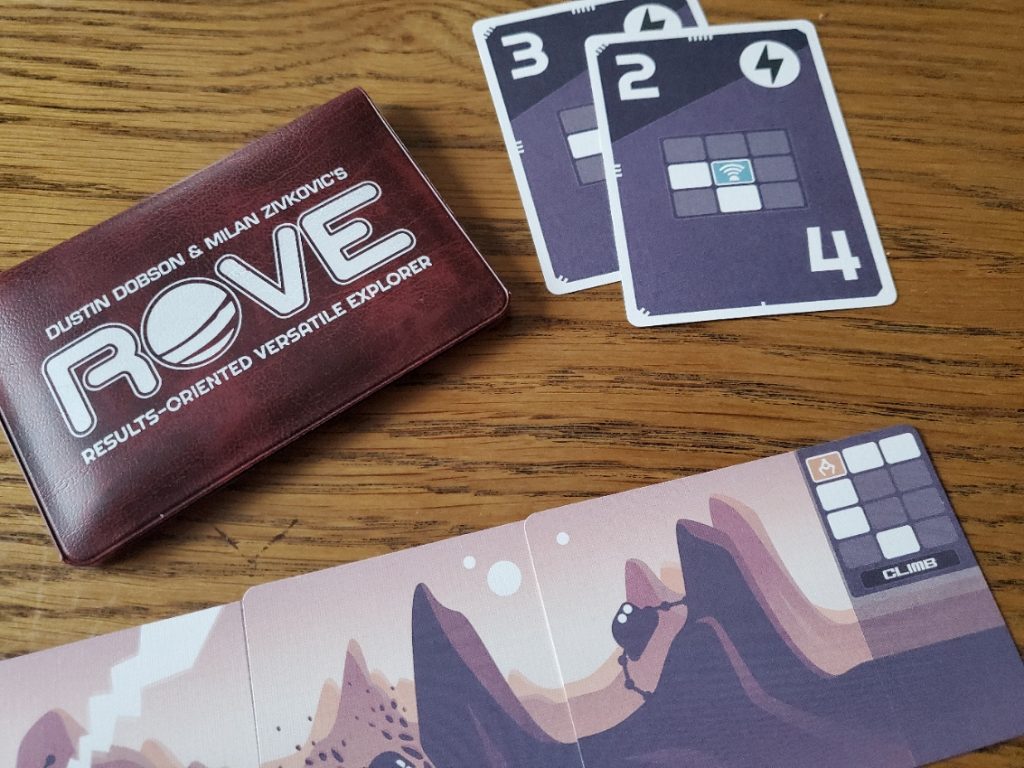
This begs the question: why am I reviewing ROVE? There are a few caveats to my confessions. I grew up playing old-fashioned solitaire. I spent countless hours with a sturdy Bicycle deck over many years sliding queens onto kings and looking for those buried aces. Call it a rationalization, but I am most compelled to try card-based solo games for their connection to what is—in my mind—the original.
Second, I have long admired Button Shy from a distance. I appreciate their business model and the sheer inventiveness of their place in the gaming industry. ROVE has now become a reason to open the Pandora’s box that is their available catalog, currently numbering in the xxx. Regardless of the game’s player count, this review opportunity was too much to allow to pass.
With that off my chest, I now tread with excitement into a few thoughts on ROVE: Results-Oriented Versatile Explorer, a spatial movement puzzle set on the surface of a distant hostile alien planet.
Configuration and convention
Assuming the role of an endangered space vehicle, players first lay out their six module cards in a 3×2 configuration. These are ROVE’s movable pieces. Each module features both a unique movement and a special ability. More on that in a moment.
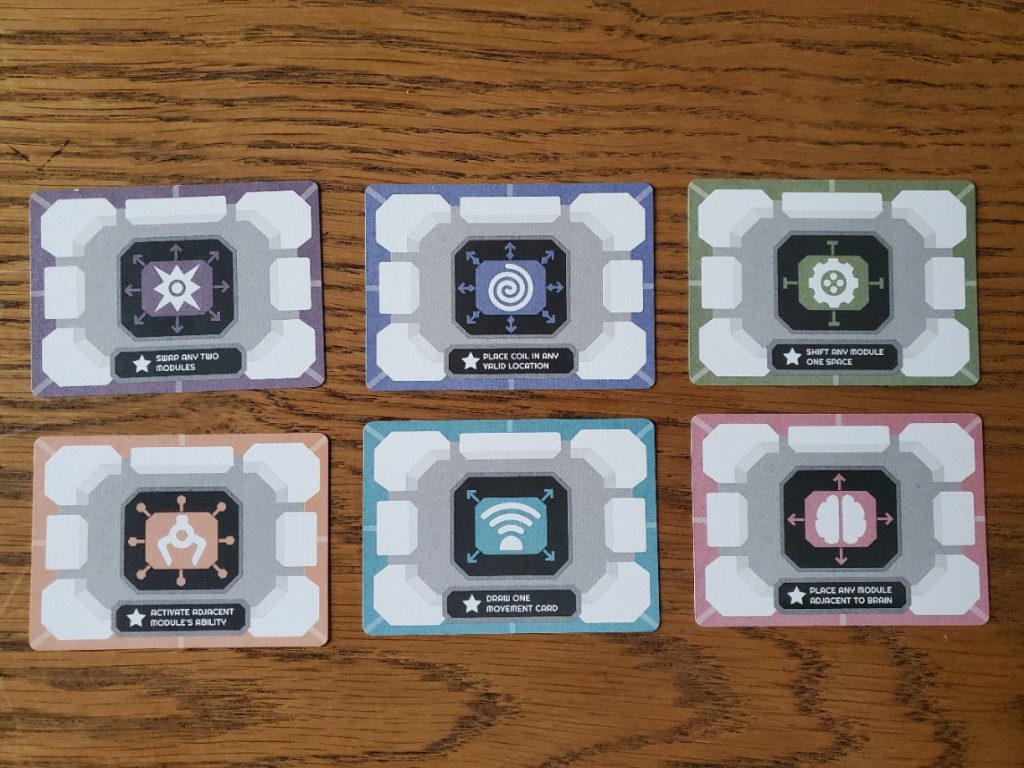
The remaining cards in the game serve a dual purpose. One side displays possible missions, each made up of a specific configuration of the six module cards on an imaginary infinite grid. The other side represents the power behind the module movement and displays both a number on top, representing playable moves, and a potential higher number on the bottom—a boost available if a specific smaller configuration of cards exists somewhere in the current module layout.
At the outset, players receive five movement cards (or fewer if you are interested in the greater challenge), and a single mission card is revealed.
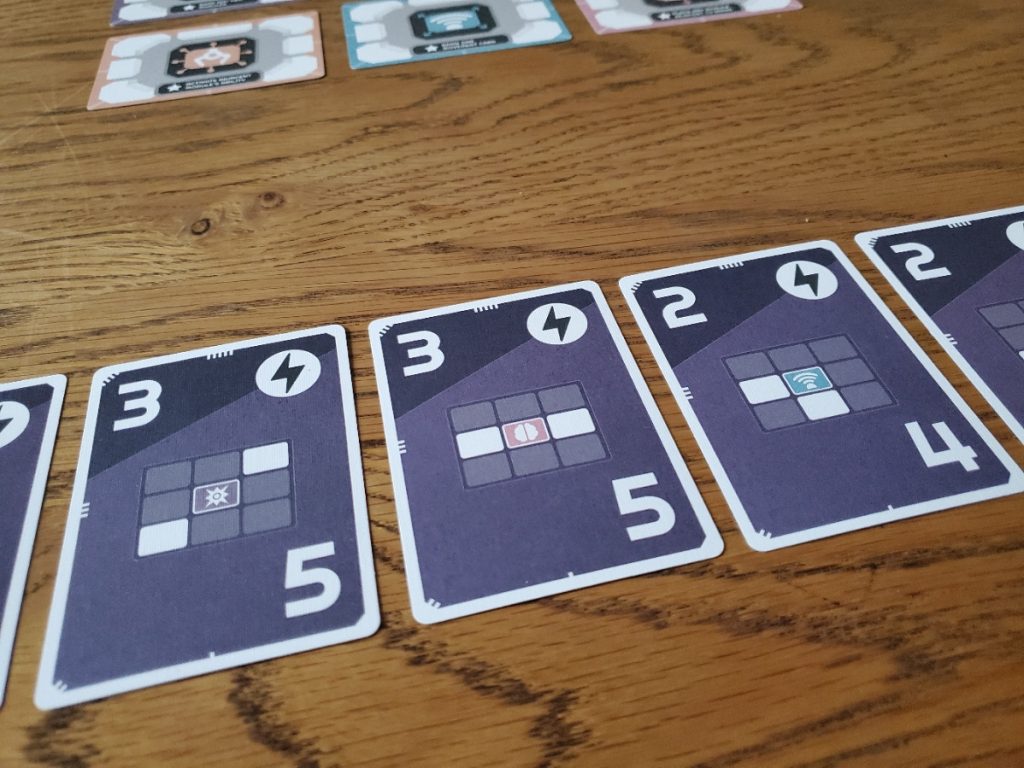
The module movements are varied: One moves diagonally; another orthogonally. One moves any number of spaces in any direction; another moves only one space. One is able to push the other cards around it as it moves one space. And while all the cards are able to leap over other modules, one card requires it. The movements are clearly laid out on the cards.
Module abilities include: drawing an extra movement card, swapping two modules, moving any module one space, placing that pesky jumping card in any desired spot, engaging an adjacent card’s ability, and drawing another card to an adjacent spot., the abilities are unbelievably useful in a pinch, as they do not count against the tally on the movement card. But they can only be used once in the game, so they must be spent judiciously.
The game unfolds rather naturally from this point. On each turn, players use a combination of movement cards and abilities to slide the modules around, trying to create the mission pattern. When the pattern is complete, a new mission is drawn, along with a single additional movement card, and the dance continues.
If a mission is complete or a new movement card played, the previous movement card must be discarded. This protects against hoarding extra movements when boosts are available. When the draw pile runs out, the discards are shuffled and re-introduced as needed.
When seven missions are complete, the game is won. When movement cards run out before the seventh mission, the game is lost.
Rumination and reflection
ROVE is a delightful offering for a number of reasons.
This little puzzle perfectly accommodates sitting alone with a cup of tea in the afternoon. It will make you think. It will offer tension and potentially heartache, but it will also give you opportunity to celebrate small victories along the way. The scalable difficulty that comes from simply dealing one less card is a fantastic and simple adjustment that extends shelf-life and variability. There is a lot of game packed into a small wallet.
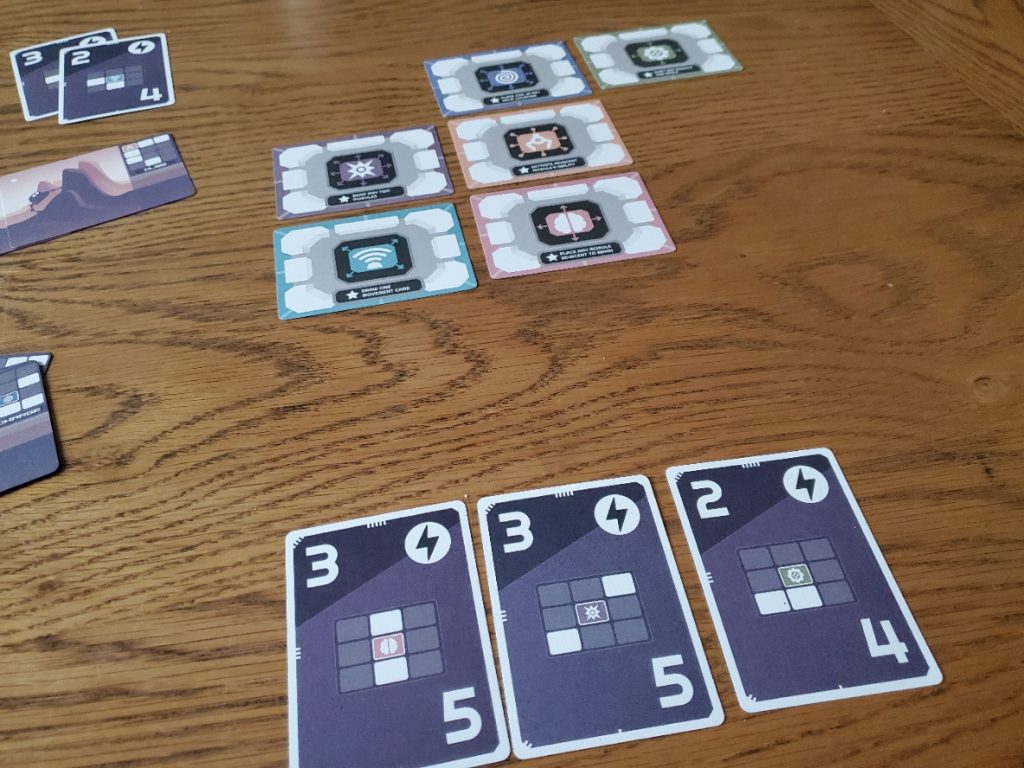
Recalling my first confession, however, the game also perfectly accommodates a shared experience with a partner, or in my case, a son or daughter. We share a warm beverage together, talk over our options together, celebrate together, and potentially mourn a loss together. I’ve played with three of my kids so far, and on each occasion we built a memory to share over dinner.
The strategic choices throughout ROVE are interesting. The draw pile reveals the next potential mission, allowing for a hint of planning and the possible daft maneuver of drawing it for movement to avoid the mission side. Likewise, the visible mini-configurations on each of the movement cards suggest certain moves that will allow for future boosts. The fact that there are layers at work beyond the basic puzzle speaks to the depth of design.
To affirm the backdrop of my second confession, the production quality on ROVE is noteworthy. Every little detail of gameplay is cared for on the cards. Perhaps the most satisfying touch, though, is the fact that with each completed mission, a unique panoramic image unfolds across the table. With only 18 cards, there somehow remained enough room for a splash of artistic charm. Small details go a long way in turning a card puzzle into a thematic experience.
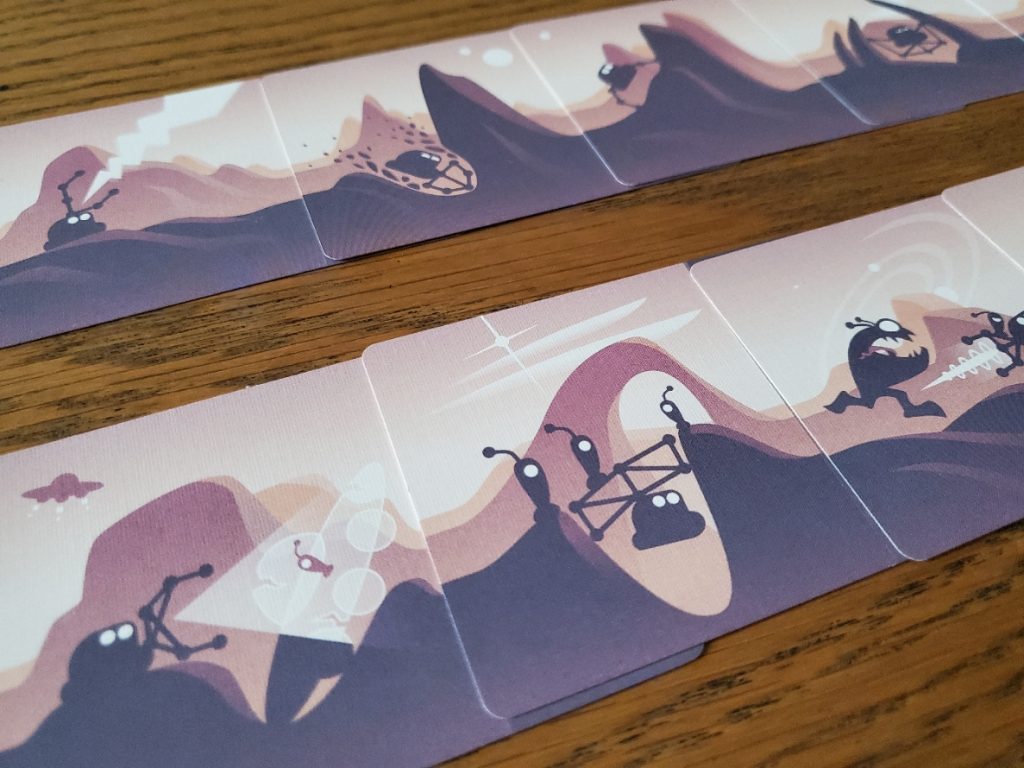
Top secret third confession: I’ve tried on multiple occasions to craft an 18-card game, but I’ve yet to come up with something that I believe to be worth sharing. This specific design process is like writing poetry. On the one hand, adhering to the limitations is where the beauty of simplicity shines. It is possible to do or say a lot with only a little. On the other hand, it’s possible to tweak such a thing to death, thereby ruining the beauty that would have shone more brightly with a less forceful hand. ROVE is a solid balance of natural simplicity and depth.
The Fascinating Flora expansion introduces six more mission/movement cards with one new feature: resets on the special module abilities. Remember those abilities were only available once in the game. Now they can resurrect to save your behind yet again. The only catch in the expansion is that the victory condition slides from seven missions to a full dozen. The expansion fits comfortably in the original wallet and integrates seamlessly with the base to provide a longer session.
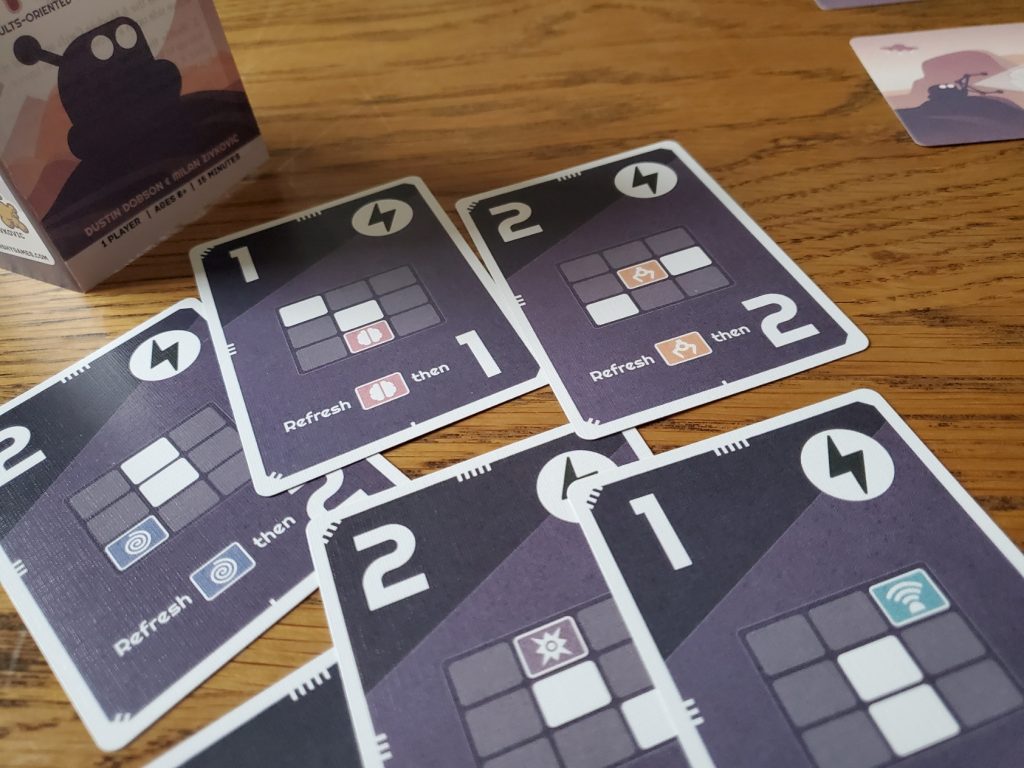
I’m not quite ready to dive in on all my solo variants, but I’m happy to have this gem on the shelf. It is worth checking out. Its arrival snuck up without crowdfunding and without a massive marketing campaign, but it is arriving at the right time of year and I believe it delivers rather well on its potential.
Fourth and unnecessary confession: Every now and again I would cheat at solitaire. I was just a kid. Cut me some slack! Don’t say you never thought about it.






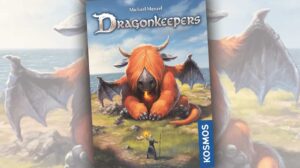




Add Comment